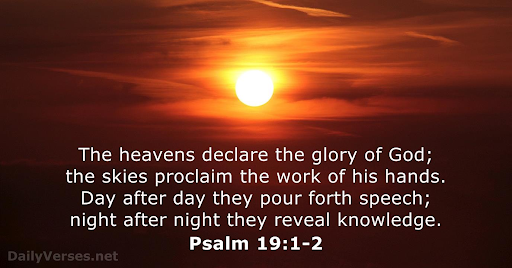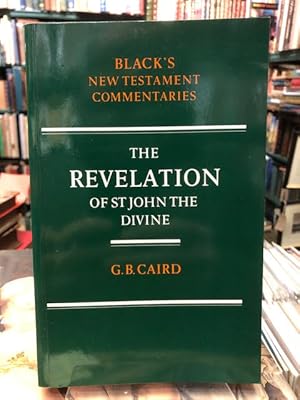"He who was seated on the throne said, 'I am making everything new!' Then he said, 'Write this down, for these words are trustworthy and true.'”
Everything new. Every human being needs to experience newness of life. If not, we become like Cain, a restless wanderer (Gen 4:12-14). Mick Jagger sang, "I Can't Get No Satisfaction." No matter what we do or don't do, we feel restless without any lasting satisfaction. That's why God gives us promise after promise of:
- a new heart and a new spirit (Eze 36:26),
- being new (2 Cor 5:17),
- renewal (Mt 19:28),
- refreshment (Acts 3:19),
- transformation (2 Cor 3:18), etc.
Our renewal and complete transformation (glorification) will happen at the end of the ages when Jesus returns, and we see him face to face (Rev 22:4). We see this best in the last 2 chapters of the Bible in Revelation 21-22.
Heaven. Revelation is about the triumph of God over the forces of evil through Jesus' victory over Satan culminating in a new heaven and a new earth (Rev 21:1). The ultimate triumph and hope of God's people is heaven
referred to > 500 times in Scripture; Revelation about
50 times. What is heaven like? The last 2 chapters of the Bible gives what may be the best description, though deeply symbol laden with imagery derived from the OT (though the OT is not directly quoted). Think of heaven in 3 ways:
- What is New (Rev 21:1-8).
- What is Missing (Rev 21:9-27; 22:1-5).
- What is Ultimate (Rev 22:4-5).
I. What Is New (Rev 21:1-8)
- A new heaven and a new earth (Rev 21:1; Gen 1:1).
- Because of sin, our world is cursed (Gen 3:14-19). The 1st heaven and the 1st earth, the old order was "subjected to frustration" (Rom 8:20), "in bondage to decay" (Rom 8:21) and "groaning as in the pains of childbirth" (Rom 8:22).
- Isa 65:17-19 - “See, I will create new heavens and a new earth. The former things will not be remembered, nor will they come to mind. But be glad and rejoice forever in what I will create, for I will create Jerusalem to be a delight and its people a joy. I will rejoice over Jerusalem and take delight in my people; the sound of weeping and of crying will be heard in it no more."
- Isa 66:22 - “'As the new heavens and the new earth that I make will endure before me,' declares the Lord, 'so will your name and descendants endure'"
- 2 Pet 3:13 - "But in keeping with his promise we are looking forward to a new heaven and a new earth, where righteousness dwells."
- The Holy City, the new Jerusalem (Rev 21:2a, 10-11) is the church redeemed by Christ. She will no longer be trampled by the nations. She is a cube city, like the Most Holy Place in the OT sanctuary (1 Ki 6:20; Eze 41:4). 12,000 stadia, or 1,500 miles, or 2,200 km (Rev 21:15-17), a city of pure gold (Rev 21:18,21). The brilliance of the new Jerusalem is like the most precious costly stones (Rev 21:11, 19-21).
- Consummation: Union of Christ with his people
- A beautiful bride (Rev 21:2b), the wife of the Lamb (Rev 21:9). Through Jesus' atoning death, God regards His redeemed people as his lovely and precious bride. Isa 62:5: "As a young man marries a young woman, so will your Builder marry you; as a bridegroom rejoices over his bride, so will your God rejoice over you."
- God dwelling with men (Rev 21:3,7). The greatest blessing of heaven will be unhindered fellowship with God. The goal of God’s covenant, “God with us” (Isa 7:14; Mt 1:23), foreshadowed in the OT tabernacle and temple, will be achieved. Gen 17:7-8: "I will establish my covenant as an everlasting covenant between me and you and your descendants after you for the generations to come, to be your God and the God of your descendants after you. The whole land of Canaan, where you now reside as a foreigner, I will give as an everlasting possession to you and your descendants after you; and I will be their God.” Lev 26:11-12: "I will put my dwelling place among you, and I will not abhor you. I will walk among you and be your God, and you will be my people." Jer 31:33: "'This is the covenant I will make with the people of Israel after that time,' declares the Lord. 'I will put my law in their minds and write it on their hearts. I will be their God, and they will be my people.'"
- Thirst quenched (5-6) from the water of life (Rev 22:1-3, 17). The "spring of the water of life" is the throne of God and the Lamb (Rev 22:1), a throne of grace (Heb 4:16) because here the thirsty drink without payment, by God’s free gift (Isa 55:1). This recalls Eden before the fall (Gen 2:8-10), and Ezekiel’s vision of a future glorious temple (Ez 47:1-12; Zech 14:8). Isa 49:10, 55:1: "Come, all you who are thirsty, come to the waters; and you who have no money, come, buy and eat! Come, buy wine and milk without money and without cost." Jn 6:35: "Then Jesus declared, 'I am the bread of life. Whoever comes to me will never go hungry, and whoever believes in me will never be thirsty.'"
- The ungodly banished (Rev 21:8, 22:11,15). Those who renounce faith do so because of cowardice or compromise with idolatry or sensuality. "Believers" fall away when their faith is challenged by hardship or difficulty. 1 Cor 6:9-10: "Or do you not know that wrongdoers will not inherit the kingdom of God? Do not be deceived: Neither the sexually immoral nor idolaters nor adulterers nor men who have sex with men nor thieves nor the greedy nor drunkards nor slanderers nor swindlers will inherit the kingdom of God." There is no evidence in the Bible (or in life) that there is ever any change of heart of those in hell (Rev 22:11; Lk 16:19-31).
II. What Is Absent/Missing (Rev 21:9-27; 22:1-5)
- No sea (Rev 21:1c). This refers to the source of earthly rebellion, chaos, and danger—the sea from which the beast emerged (Rev 13:1; Dan 7:3). This symbolic (or literal) source of rebellion will no longer threaten creation’s perfection. Isa 57:20: "But the wicked are like the tossing sea, which cannot rest, whose waves cast up mire and mud. 'There is no peace,' says my God, 'for the wicked.'”
- No tears (Rev 7:17; Isa 65:19), no death (Isa 25:8), no mourning, no crying, no pain (Rev 21:4).
- No temple (Rev 21:22). Jesus himself is the tent and the temple in which God lives among his people (Jn 1:14; 2:19-21).
- No sun and moon (Rev 21:23).
- No impurity (Rev 21:27).
- No curse (Rev 22:3).
- No night (Rev 22:5).
III. What Is Ultimate (Rev 22:4-5): Seeing God’s face
- When Moses asked to see God's face, God said, “you cannot see my face, for no one may see me and live” (Exo 33:20).
We long to see loved ones whom we miss after they die. Or as we die we remember our most cherished and beloved ones. As with many men, I love the ultra violent movie 300 where 300 Spartans stood their ground against an unending multitude of Persian troops. As the King of Sparta died in a hail of arrows, he said, "My queen, my wife, my love." It is a moving and romantic scene. But it is bittersweet because of the final parting of lovers through death. So it is with Romeo and Juliet.
We human beings all long for a satisfaction through a love that knows no end.
On that day those who have persevered in faith will be fulfilled. It is our dearest and deepest longing to see God face to face, and to see Him look upon us with eyes of deep love and affection. It will be the greatest blessing of the age to come, as God looks upon his people with favor and delight. This is free and without cost to us. But it was not without cost to God. To look upon us God would have to look away from His Son on the cross though he cried out in agony of soul (Mt 27:46; Mk 15:34; Ps 22:1). God had to forsake his Son, so that he will not forsake us. God would "hate" his Son on the cross, so that He could love us. God forsook his Son so that He could usher in for us a new heaven and a new earth, which will be forever.




